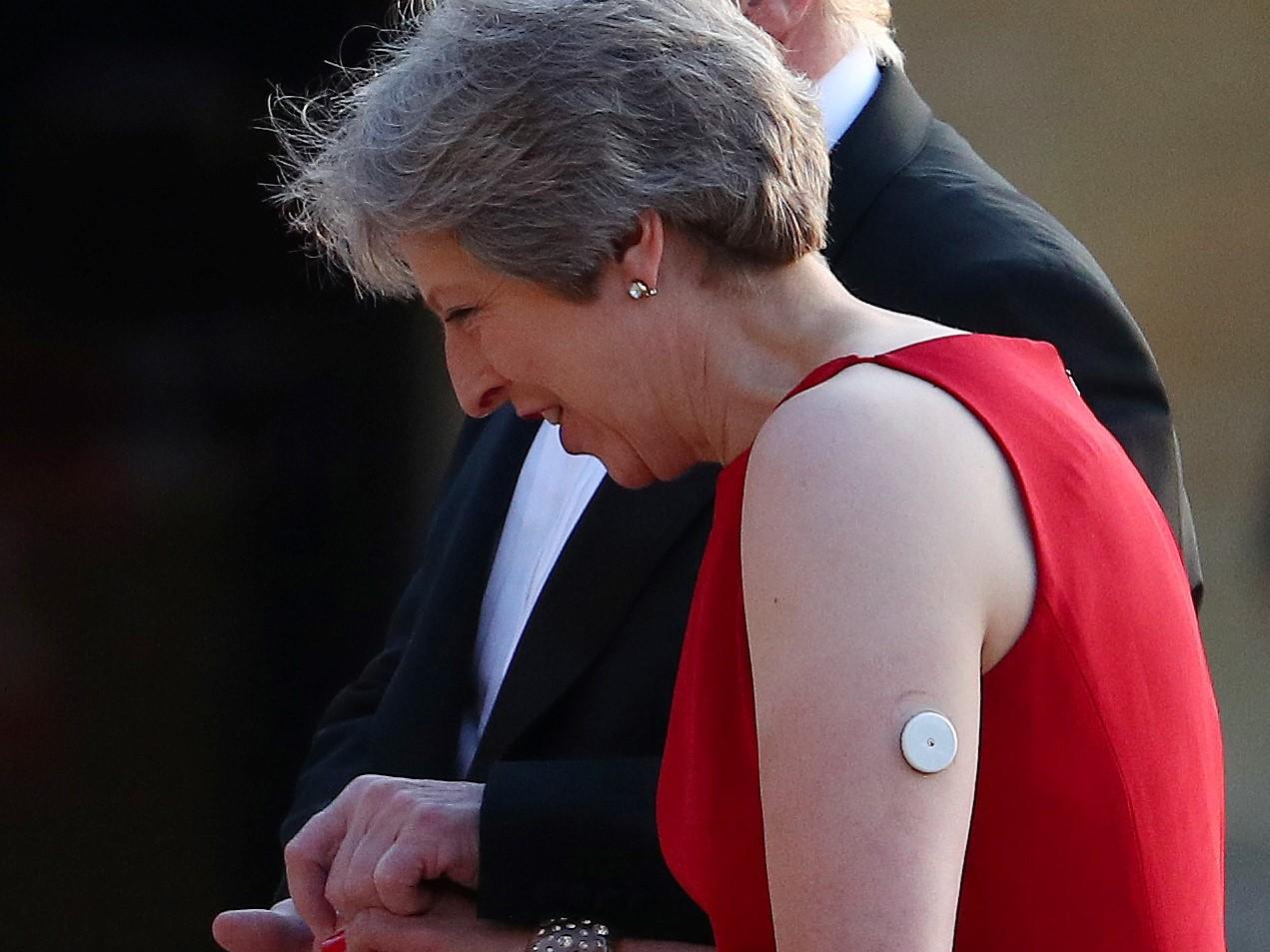NHS postcode lottery denying thousands of diabetics blood sugar monitor used by Theresa May, investigation finds
Commissioning groups paying 'lip service' to guidelines which show blood sugar monitor used by prime minister can save the NHS money long term

Tens of thousands of people with type 1 diabetes are being put at increased risk of serious complications by “short-sighted” rationing of a blood sugar patch used by Theresa May, an investigation has found.
The prime minister is one of 400,000 type one diabetics in the UK. She told Parliament in last month that NHS patients would be prescribed the same Freestyle Libre monitor she uses to maintain a healthy blood glucose levels.
The wearable sensor which sits on the arm can feed continuous glucose levels to a smart phone or reader, doing away with the need to do the finger prick blood test.
However, NHS England’s associate national clinical director for diabetes, has said only around one in five patients who could benefit from the monitors, have access to them, one year after they first became available.
Dr Partha Kar spoke out after an investigation in the British Medical Journal (BMJ) found prescription of the monitors in England was significantly behind the other home nations. It also revealed that a number of NHS clinical commissioning groups (CCGs) have put strict restrictions on devices.
“I think some of it CCGs’ resistance] is financial," he said. “But also some people are just finding a reason to say no. One CCG said to me, ‘We don’t think the evidence is there.’ And I said, ‘Well, how is the evidence there for London, Manchester, Liverpool, Brighton but not for you? How does that work?’ That’s just ridiculous.”
He added that they were “paying lip service” to guidelines set by the National Institute of Health and Care Excellence (NICE).
Campaigners have also claimed it is compromising diabetics’ quality of life and creating extra costs for the NHS in the long-run from limb amputations and other complications of poorly controlled blood sugar.

NICE recommends treatments for the NHS in England and has called the Libre device cost effective in many patients with severe diabetes in need of frequent monitoring.
If they were followed correctly, Dr Kar estimates as many as 25 per cent of type 1 diabetics would be prescribed the device. Currently that number is 5 per cent at most.
In some areas GPs are flouting the restrictions placed on them by their CCGs because of the transformative effect other device can have to their patients, but others face real barriers.
Dr Emma Wilmot, a consultant diabetologist in Derby said some of her patients have considered moving house to fall within the catchment area of a CCG which will prescribe the device.
“I’ve had to say to patients, ‘I’m really sorry, you don’t meet the criteria because your GP is not in the right area.’ They are absolutely gutted. My worry is the people who aren’t in a position to self-fund it. The most deprived people in the population often have the least access.”
She added: “The reason that we strive to reduce complications is to maintain quality of life. And actually, by preventing people having access to the Libre you are compromising their quality of life compared with what it could be.”
Data disclosed to the BMJ under the Freedom of Information Act shows that some areas have invested heavily in making the devices available, but only two of 195 CCGs had prescribed to more than 20 per cent of their type 1 diabetics.
Twenty-five CCGs had issued no prescriptions at all. Diabetes campaigners claim just 2 per cent of patients in England have a GP prescription for Freestyle Libre, compared to 11 per cent in Scotland, 16 per cent in Wales and 35 per cent in Northern Ireland.
Julie Wood, chief executive of NHS Clinical Commissioners, which represents CCGs, told the BMJ: “Unfortunately the NHS does not have unlimited resources, and ensuring patients get the best possible care against a backdrop of spiralling demands, competing priorities, and increasing financial pressures is one of the biggest issues CCGs face.”
Join our commenting forum
Join thought-provoking conversations, follow other Independent readers and see their replies
Comments
Bookmark popover
Removed from bookmarks